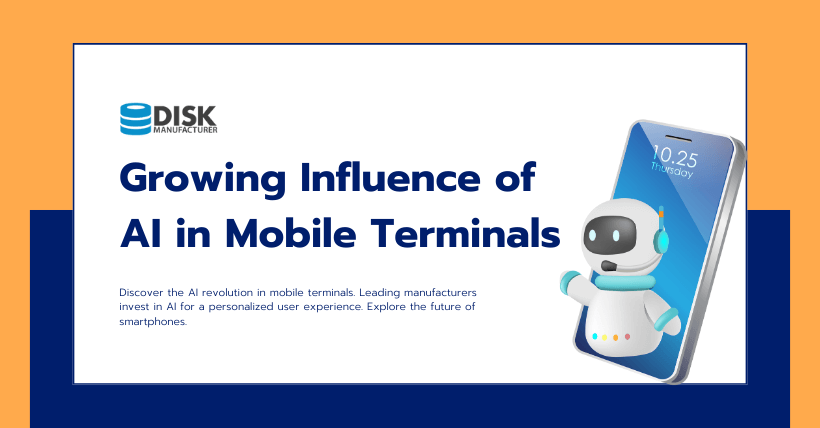It’s no secret that mobile terminal manufacturers are on the path to revolutionizing the way we interact with our smartphones. Various signs indicate that AI integration is becoming the new frontier, and major players like Apple, Huawei, Qualcomm, and more are heavily investing in this groundbreaking direction. This article explores the increasing significance of AI in mobile terminals and the transformative impact it’s bringing to the tech industry.
01
Embracing the AI Revolution
The Mobile Market’s Response to Homogenization
In the current mobile phone market, homogenization has become an alarming trend. Many devices appear similar in terms of features and functionalities. To stand out, manufacturers are now turning to AI as a breakthrough direction. Apple, for instance, has started investing more in AI to differentiate itself.
AI’s Role in Speech, Video, and Camera Optimization
AI’s applications in mobile terminals are primarily concentrated in areas like speech recognition, video enhancement, and camera optimization. This is changing the way we interact with our devices and the quality of the media we produce.
The Power of AI Chips
Chip manufacturers have recognized the potential of AI and are actively integrating AI technology into their chips. This is done to meet the expanding needs of mobile phone manufacturers and gain an early market advantage. OpenAI’s ChatGPT is one example of the technological breakthrough AI has enabled.
02
Leading the Way: Chip Manufacturers and Their Strategic Moves
Huawei’s Deep Reserves and Emerging Applications
Huawei has been at the forefront of AI integration in mobile terminals. With deep reserves in AI technology, they are constantly unveiling new applications that go beyond the standard smartphone features.
Qualcomm’s Market Dominance
Qualcomm, a major chip manufacturer, is setting a benchmark in AI technology. At their Snapdragon Summit, they introduced the third-generation Snapdragon 8 mobile platform, showcasing its improved generative AI capabilities and performance that outshines industry giants like Apple and Intel.
The Need for Effective Application
While chip manufacturers are making significant strides, true success depends on effectively applying AI chips to launch flagship products. Qualcomm is providing manufacturers with a “shortcut” to do this, essential in today’s competitive market.
03
A New Era: The Influence of AI on Mobile Terminals
Diversification of Revenue Streams
In response to the growing influence of AI, chip manufacturers like Qualcomm are diversifying their revenue streams. This includes penetrating more mobile terminals and server markets to stay ahead of the curve.
The Promise of Generative AI
Qualcomm believes that AI on the terminal side will revolutionize the smartphone market, creating a new upgrade cycle. This will open up opportunities for Chinese partners entering the flagship and high-end markets, as well as overseas markets.
Huawei’s Remarkable Success
Huawei’s success story in the mobile market is notable. Despite market declines, the Huawei Mate 60 Pro series has created a buzz, breaking through international restrictions and offering users a taste of significant technological advancements.
04
The Multi-Faceted Impact of AI
Personalized User Experience
AI’s impact on mobile phones is vast, as it can predict users’ actions based on their data and preferences. It knows your schedule, communication partners, and more, all while respecting your privacy. This enables AI to provide daily activity assistance, potentially rendering traditional apps on smartphones obsolete.
05
Conclusion
The integration of AI into mobile terminals is reshaping the tech landscape. Major players in the industry are actively embracing AI to overcome the homogenization challenge and provide users with a more personalized and efficient experience. As AI continues to evolve, the future of mobile terminals looks promising.
06
FAQs
1. What is the significance of AI in mobile terminals?
AI in mobile terminals is significant as it helps manufacturers differentiate their products in a competitive market and enhances user experiences through features like speech recognition and camera optimization.
2. Which chip manufacturers are leading the AI revolution?
Companies like Qualcomm, Huawei, and Apple are at the forefront of AI integration in mobile terminals, with Qualcomm’s third-generation Snapdragon 8 mobile platform being a notable example.
3. How is AI changing the smartphone market?
AI is predicted to create a new upgrade cycle in the smartphone market, potentially replacing traditional apps with AI assistants that provide personalized user experiences.
4. What makes Huawei’s success stand out in the smartphone market?
Huawei’s success lies in its technological breakthroughs, overcoming international restrictions and offering users access to significant technological advancements.
5. What can we expect from the future of mobile terminals with AI?
The future of mobile terminals with AI promises a more diverse and personalized user experience, as AI continues to evolve and integrate into various aspects of our daily lives.









